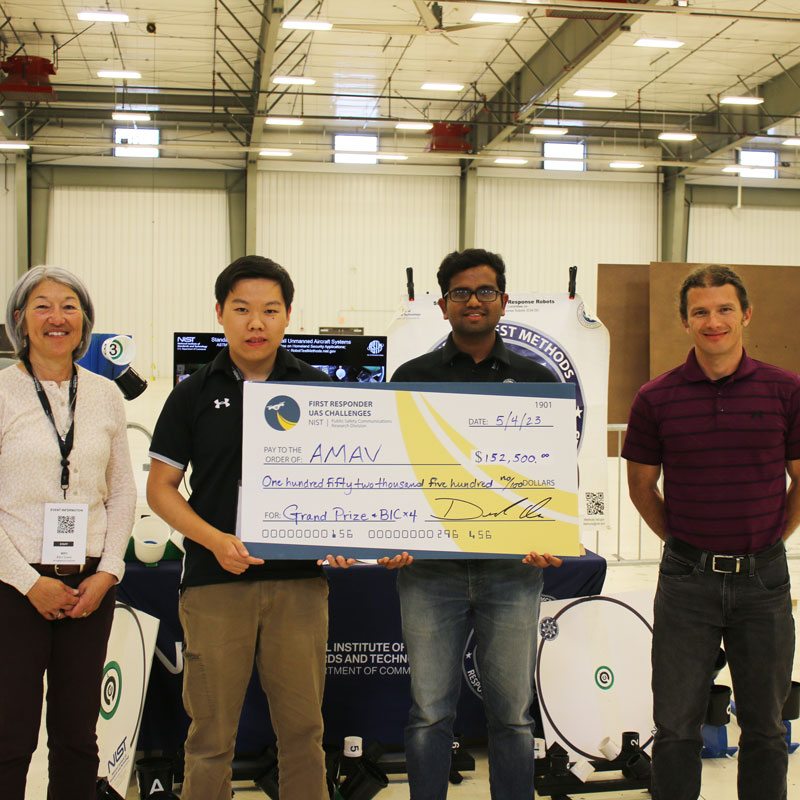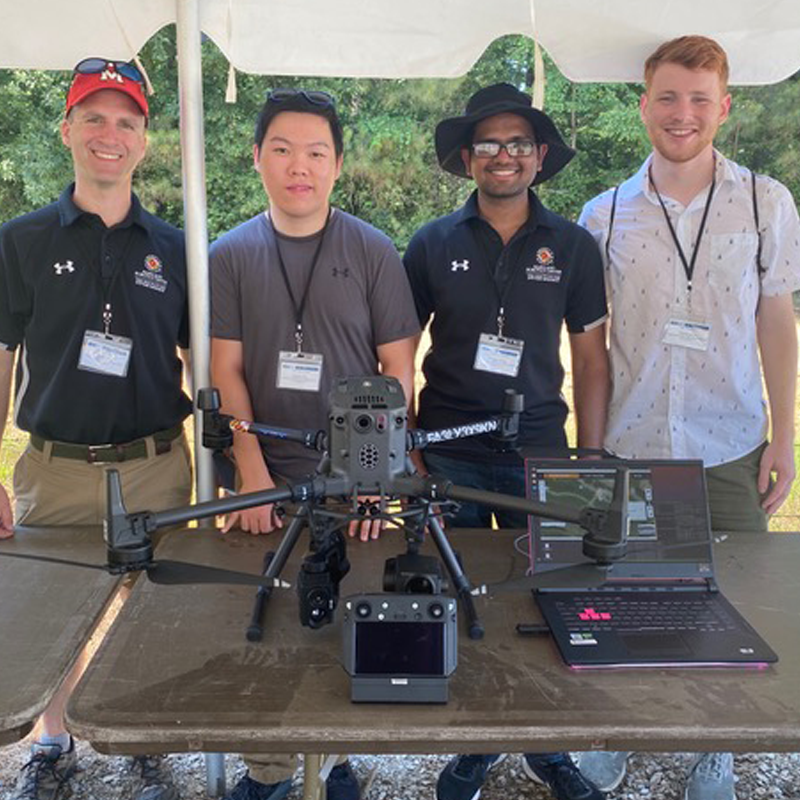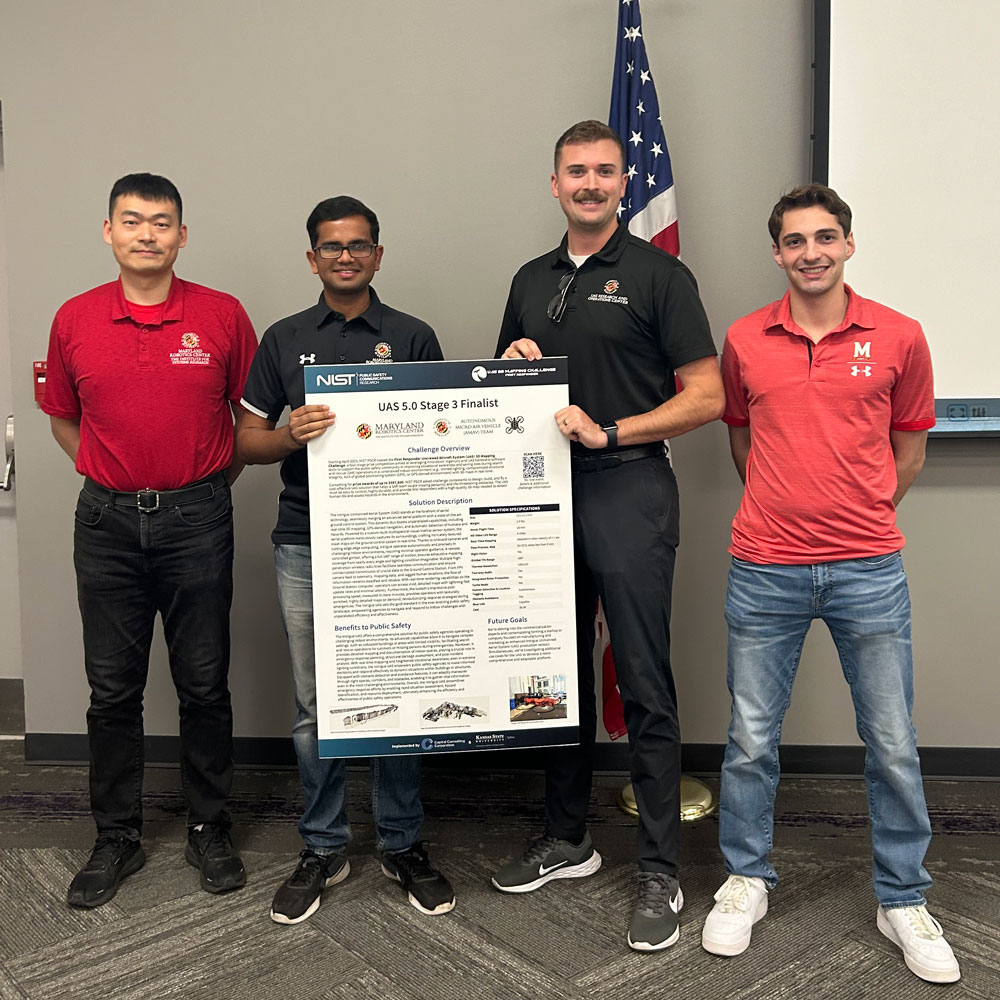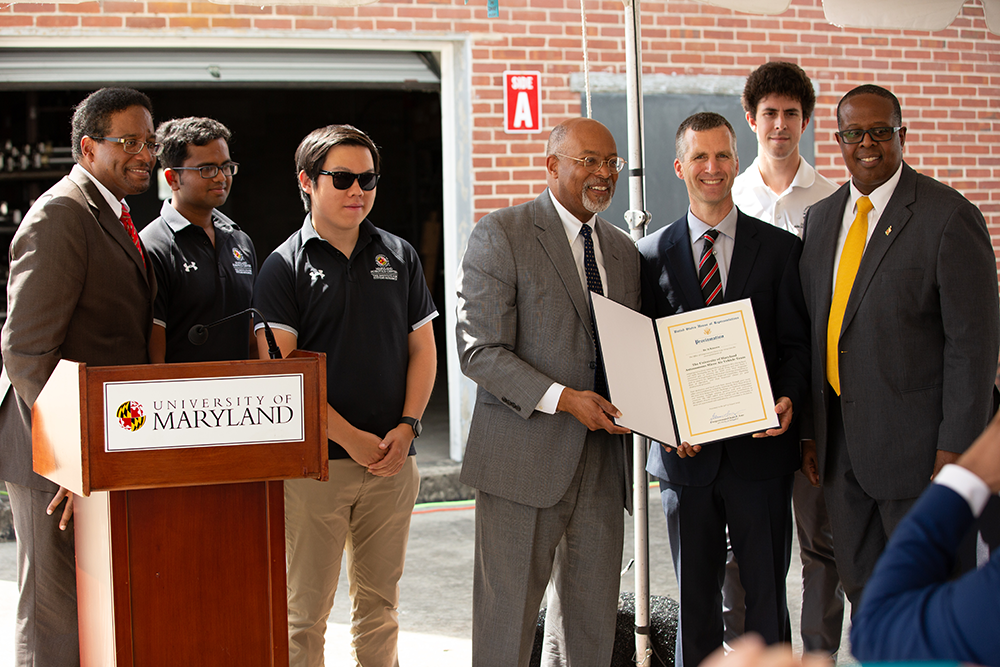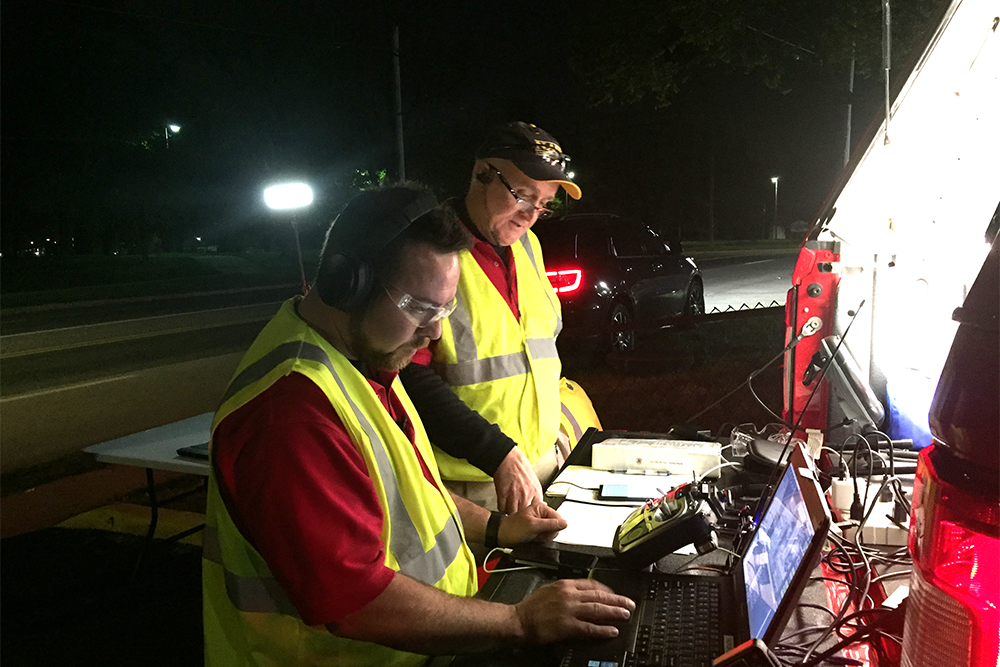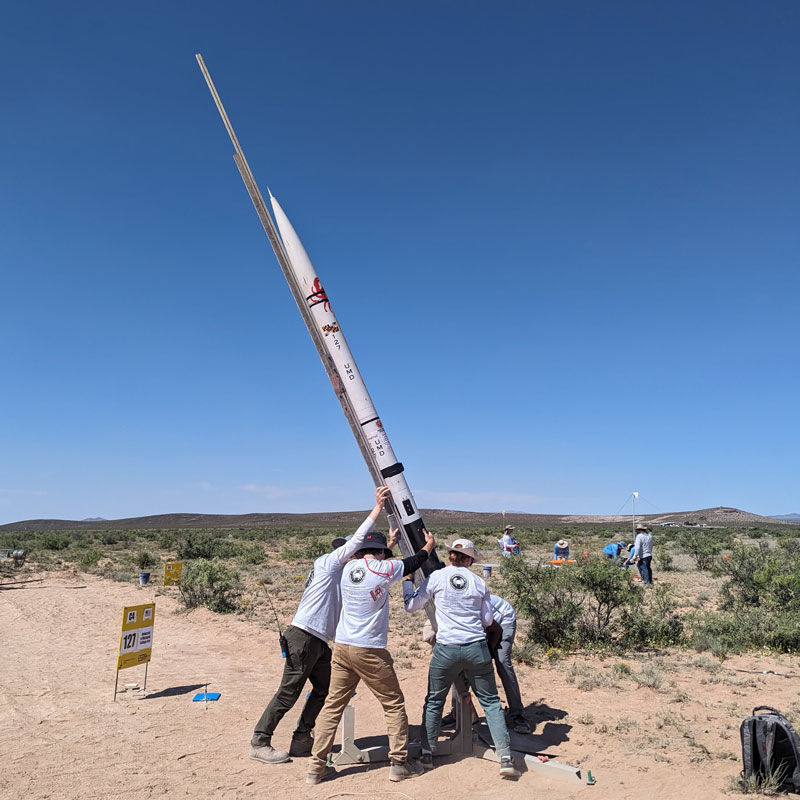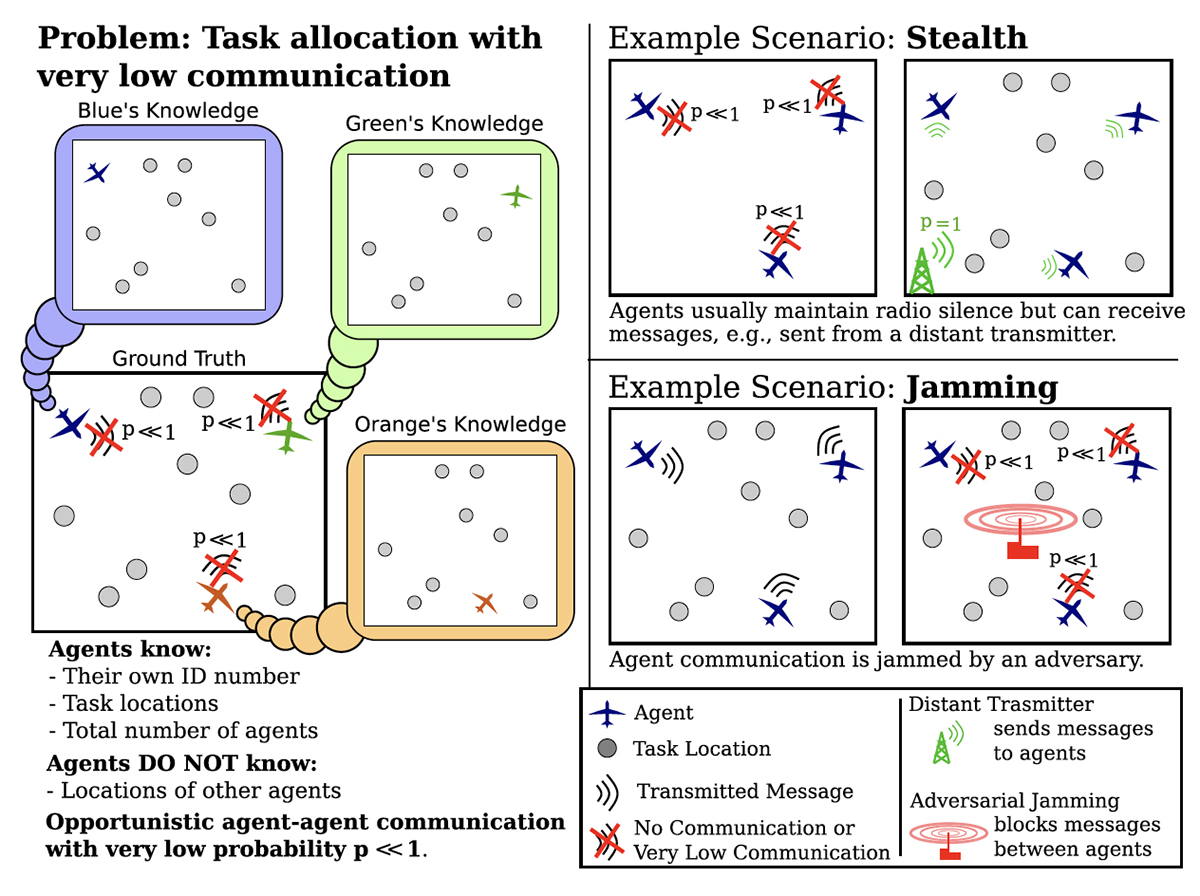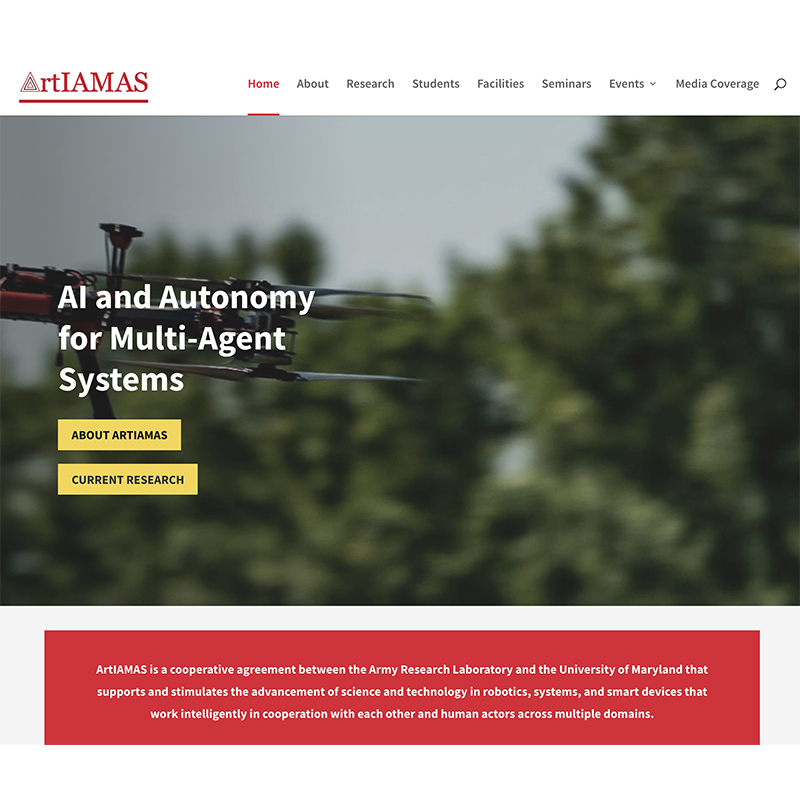News Story
Diving Deeper into Competition, and Recruitment
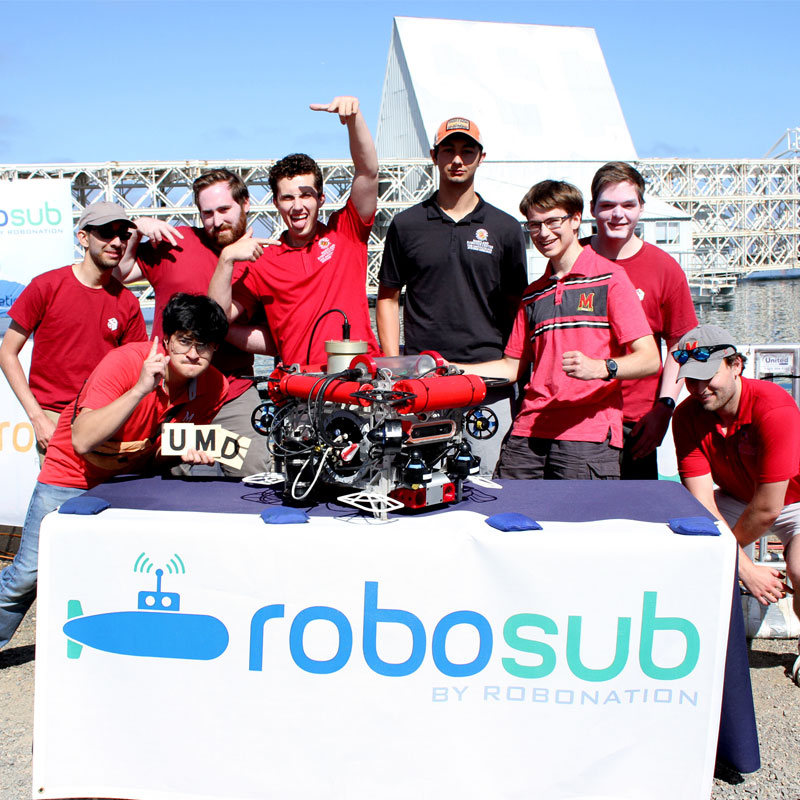
RoboSub team members at competition in Sand Diego this year, from left to right: Ishaan Ghosh (Computer Science), Manny Gancayco (Mechanical Engineering); Erik Chapman (Electrical Engineering); Dillon Capalongo (Mechanical Engineering); Drew Weller (Electrical Engineering); Alex Yelovich (Computer Science and Math); Jeffrey Fisher (Computer Science) and Josh Smith (Computer Science).
After a rocky return to competition post-Covid in 2022, the Robotics at Maryland (R@M) RoboSub team has been making waves in recent competition while reinvigorating the club through expanded recruitment and engagement.
The team barely got their sub in the water during 2022’s competition, taking a huge hit in rankings, but after an intensive year spent reevaluating, overhauling and refining their underwater autonomous vehicle (UAV) Qubo, the R@M team rose to 6th place overall in 2023, beating out teams from Ohio State, Carnegie Mellon and Cornell.
This ranking also made UMD the second-best U.S. team for the year.
“This is a wild improvement from last year, going from a mere 333 points in 2022 to 2781 points this year!” said Dillon Capalongo, R@M's current team President and a senior in mechanical engineering.
From a brand-new electrical system to a modular torpedo design—yes, they have torpedoes, but no, they don’t explode—the team worked many long hours to reinvent Qubo, named for the Somali word for ‘turtle.’
Hosted at the U.S. Navy’s Acoustic Transducer Evaluation Center (TRANSDEC) in San Diego, Calif., the annual RoboSub Competition is an international competition that challenges student teams from around the world to build robotic submarines, or autonomous underwater vehicles (AUVs), that need to complete a series of defined tasks.
“There’s no tether or cables,” explained Capalongo. “That’s what makes it such a difficult challenge. All we get to do is flip a switch on, and then the sub has to complete the tasks fully autonomously. We have no control over it once it’s in the water.”
The team faced additional challenges this year including shipping damage during competition which required some creative late-night, last-minute repairs to develop an approach for navigating the competition course without sonar.
“The edge of the pool was speckled in a very particular pattern,” explained Alex Yelovich, a junior math/computer science major and the team’s Software Officer. “So, we were able to use our stereo vision camera to figure out how far away from the wall we were, and in conjunction with our inertial measurement unit, compass and vertical camera, we were to help Qubo navigate the course.”
Outside of competition, the team has not only worked hard to improve their sub, but they have worked just as hard to improve recruitment and engagement, especially among younger students.
“It’s important to have fresh members, with fresh perspectives to help carry the torch moving forward,” said Eric Chapman, a senior in electrical and computer engineering and the team’s Electrical Officer. He’s been mentoring two students all year to help them take over a lot of the duties he will be relinquishing on graduation.
Qubo is entirely built by us. From mechanical engineering manufacturing to our electrical team making custom printed circuit boards and power distribution systems, and then software coming up with their own algorithms, it gets everyone involved in the process.
Team President Dillon Capalongo
Capalongo believes that improving recruitment can help the team build a more robust knowledge base to support the club’s progress and development, and help close some of the transition gaps when a large number of members graduate at the same time, a particular challenge when the club is predominantly made of seniors, leaving new members to play a lengthy game of catch up.
This year, the team created an onboarding process for new members that features small interdisciplinary teams of students building catamarans together, but with individualized tasks on the project. The goal is to help them start developing fundamental skills and experience before they dive into the more complex systems on Qubo.
Capalongo, who’s been a member of the team since his freshman year, sees this new aspect of the program as a way to not only invest in the knowledge base of the team, but it helps to engage and attract students who might not think they are ready to join due to lack of experience, but they do have a lot of interest and excitement in learning robotics.
Teamwork, skill-building and hands-on experience are part of what make teams like R@M’s RoboSub a valuable asset for students at Maryland.
“I joined RoboSub (and engineering) because I wanted to make these cool ideas I had in my head,” said Emmanual “Manny” Gancayco, a senior in mechanical engineering and the team’s Mechanical Lead. “School work is very intensive, but through RoboSub, I really started to get validated in the things that I joined engineering for, to make things, and I started to feel more like the person I wanted to be as an engineer.”
Looking ahead to 2024, the team is optimistic and excited for what’s next on the horizon.
Taking full advantage of having a working robot, and a robust working system, they are focusing on improving systems, including a new modular electrical system and sonar, so they can complete more tasks in competition, because more completed tasks equal more points on the scoreboard.
“Qubo is entirely built by us,” said Capalongo. “From mechanical engineering manufacturing to our electrical team making custom printed circuit boards and power distribution systems, and then software coming up with their own algorithms, it gets everyone involved in the process.”
The R@M RobSub team is mentored by Aerospace Engineering Professor David Akin and Mechanical Engineering Senior Lecturer Steven Mitchell and is open to students from all levels and disciplines.
If you are interested in joining, or want to learn more, contact the team at team@ram.umd.edu or visit https://go.umd.edu/umd-robosub.
You can support the team today by visiting https://launch.umd.edu/project/39982. Funds raised help support projects, competition and travel costs for the students.
Published November 28, 2023
